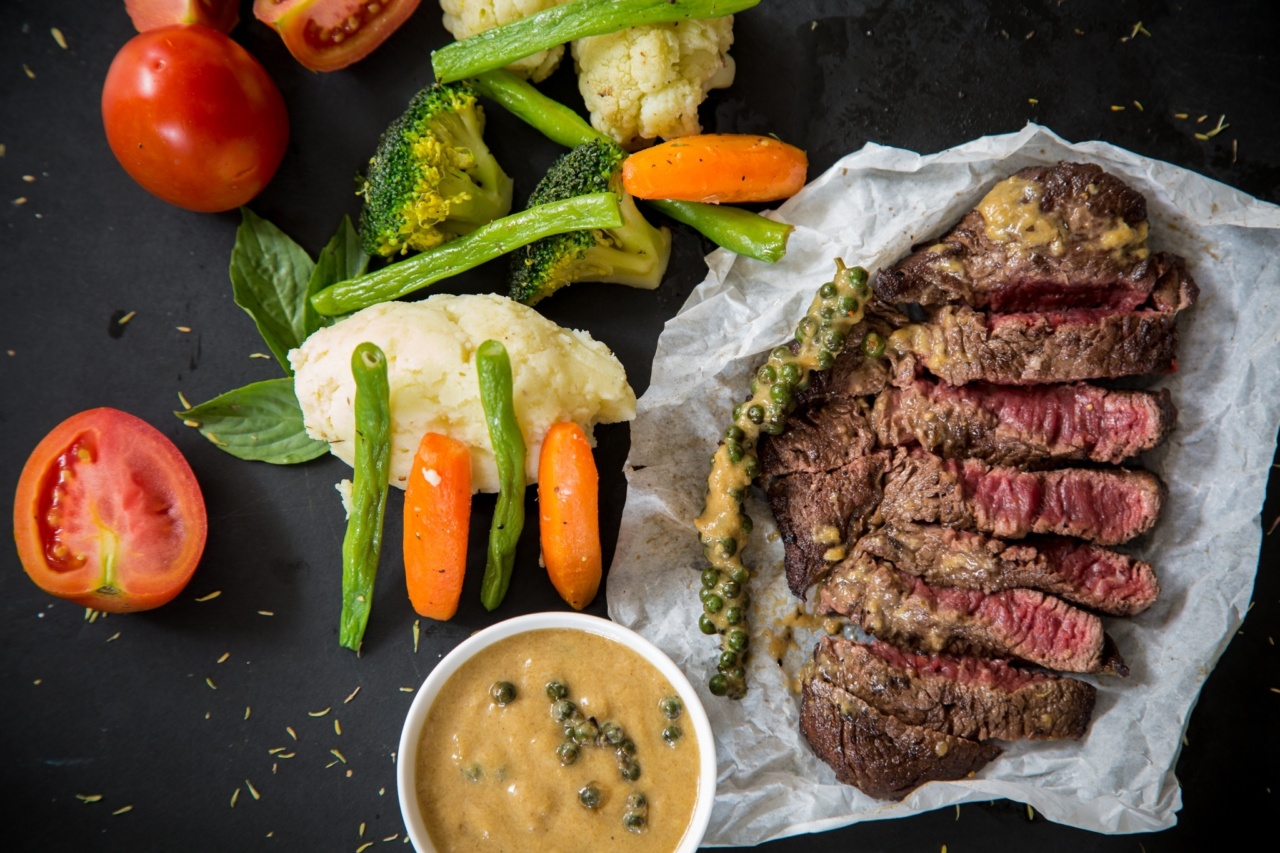Protein is an essential nutrient that plays a crucial role in the growth, repair, and maintenance of our body’s tissues.
While meat is often seen as the primary source of protein, there are plenty of plant-based alternatives that can provide the necessary protein in a meat-free diet. Whether you’re a vegetarian, vegan, or just looking to reduce your meat consumption, here are some meat-free ways to get your protein fix:.
1. Legumes
Legumes, including beans, lentils, and chickpeas, are an excellent source of plant-based protein. They are not only high in protein but also provide a healthy dose of fiber, vitamins, and minerals.
Incorporating legumes into your diet can be as simple as adding them to salads, soups, or stews, or even making delicious bean burgers or lentil curries.
2. Quinoa
Quinoa is a complete protein, meaning it contains all nine essential amino acids that our bodies cannot produce on their own. This versatile grain is not only packed with protein but also provides fiber, iron, magnesium, and various antioxidants.
You can enjoy quinoa as a side dish, in salads, or as a substitute for rice in your favorite recipes.
3. Nuts and Seeds
Nuts and seeds are not only a great source of protein but also contain healthy fats, fiber, vitamins, and minerals. Almonds, walnuts, chia seeds, flaxseeds, and hemp seeds are particularly high in protein.
Snack on a handful of nuts or sprinkle some seeds onto your oatmeal or yogurt to boost your protein intake.
4. Tofu and Tempeh
Tofu and tempeh are popular meat substitutes for vegetarians and vegans because of their high protein content. Tofu is made from condensed soy milk and is a versatile ingredient that can be stir-fried, grilled, or used in soups and stews.
Tempeh, on the other hand, is a fermented soybean product that offers a nutty flavor and can be marinated and grilled for a tasty protein-rich meal.
5. Greek Yogurt
Greek yogurt is an excellent source of protein, calcium, and probiotics. It contains more protein than regular yogurt as it goes through a straining process that removes excess liquid.
Enjoy Greek yogurt as a breakfast or snack, and add some fruits or nuts for extra flavor and nutrition.
6. Seitan
Seitan, also known as wheat meat or wheat gluten, is made from gluten, the protein found in wheat. It has a chewy texture and can be used as a meat substitute in various recipes. Seitan is very high in protein and also provides iron and selenium.
You can find seitan in the form of sausages, deli slices, or simply make your own using vital wheat gluten.
7. Edamame
Edamame are young soybeans that are harvested before they harden. These little green gems are not only delicious but also a fantastic source of plant-based protein.
You can enjoy edamame steamed and lightly salted as a snack, or add them to salads, stir-fries, or pasta dishes for an extra protein boost.
8. Spirulina
Spirulina is a blue-green algae that is highly nutritious and protein-dense. It contains all essential amino acids and is also rich in vitamins, minerals, and antioxidants.
Although spirulina has a strong taste, you can add a teaspoon or two to your smoothies or mix it with some water or juice to reap its benefits.
9. Plant-Based Protein Powders
Plant-based protein powders, such as pea protein, hemp protein, or brown rice protein, are a convenient way to increase your protein intake. They are easily added to smoothies, shakes, or baked goods and provide an extra boost of protein when needed.
Just make sure to choose high-quality, minimally processed protein powders.
10. Nutritional Yeast
Nutritional yeast is a deactivated yeast that adds a cheesy, nutty flavor to dishes. It is a complete protein and also provides essential vitamins, such as B vitamins and zinc.
Sprinkle nutritional yeast on popcorn, salads, or pasta to enhance the flavor and increase your protein intake.
Conclusion
Getting your protein fix without relying on meat is entirely possible with these meat-free alternatives.
By incorporating legumes, quinoa, nuts, seeds, tofu, tempeh, Greek yogurt, seitan, edamame, spirulina, plant-based protein powders, and nutritional yeast into your diet, you can ensure you’re meeting your protein needs while enjoying a diverse range of delicious and nutritious meals.





























